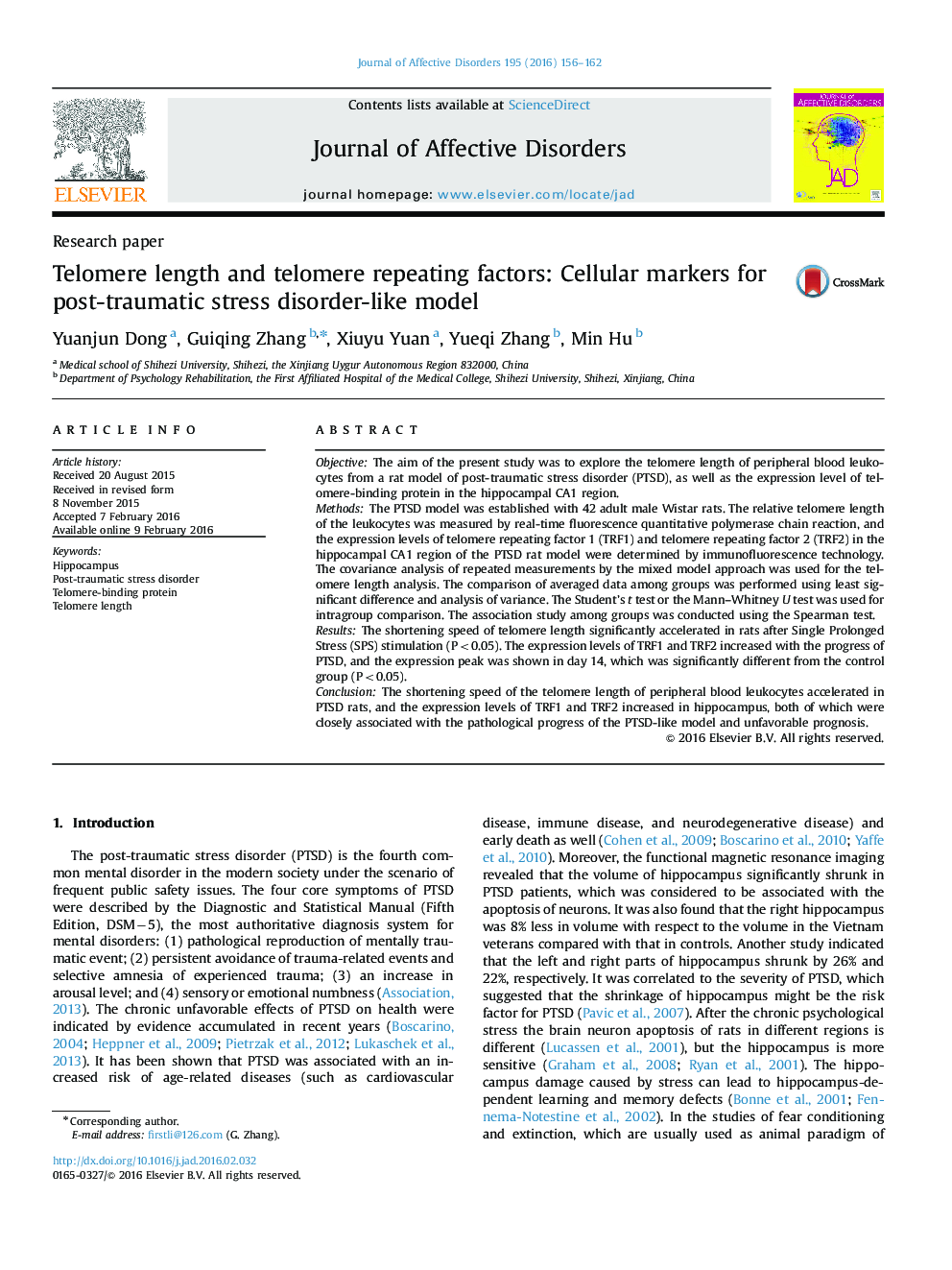| Article ID | Journal | Published Year | Pages | File Type |
|---|---|---|---|---|
| 6230398 | Journal of Affective Disorders | 2016 | 7 Pages |
â¢The shortening speed of the telomere length of peripheral blood leukocytes accelerated in PTSD rats, and the expression levels of TRF1 and TRF2 increased in hippocampus, both of which were closely associated with the pathological progress of PTSD and unfavorable prognosis.â¢The findings of this study indicated that SPS stress could shorten the telomere length in rats and the shortening speed of telomere length accelerated in the PTSD rats than in the control rats.â¢The accelerated shortening of telomere length was a direct consequence of life and metal stress.â¢The expression of TRF1 and TRF2 significantly increased in the hippocampal CA1 region in the PTSD rats, which might lead to the apoptosis of hippocampus or neuronal death.â¢TRF1 and TRF2 might be involved in the development of hippocampal atrophy as one of the pathological mechanisms of PTSD and unfavorable prognosis.
ObjectiveThe aim of the present study was to explore the telomere length of peripheral blood leukocytes from a rat model of post-traumatic stress disorder (PTSD), as well as the expression level of telomere-binding protein in the hippocampal CA1 region.MethodsThe PTSD model was established with 42 adult male Wistar rats. The relative telomere length of the leukocytes was measured by real-time fluorescence quantitative polymerase chain reaction, and the expression levels of telomere repeating factor 1 (TRF1) and telomere repeating factor 2 (TRF2) in the hippocampal CA1 region of the PTSD rat model were determined by immunofluorescence technology. The covariance analysis of repeated measurements by the mixed model approach was used for the telomere length analysis. The comparison of averaged data among groups was performed using least significant difference and analysis of variance. The Student's t test or the Mann-Whitney U test was used for intragroup comparison. The association study among groups was conducted using the Spearman test.ResultsThe shortening speed of telomere length significantly accelerated in rats after Single Prolonged Stress (SPS) stimulation (P<0.05). The expression levels of TRF1 and TRF2 increased with the progress of PTSD, and the expression peak was shown in day 14, which was significantly different from the control group (P<0.05).ConclusionThe shortening speed of the telomere length of peripheral blood leukocytes accelerated in PTSD rats, and the expression levels of TRF1 and TRF2 increased in hippocampus, both of which were closely associated with the pathological progress of the PTSD-like model and unfavorable prognosis.
